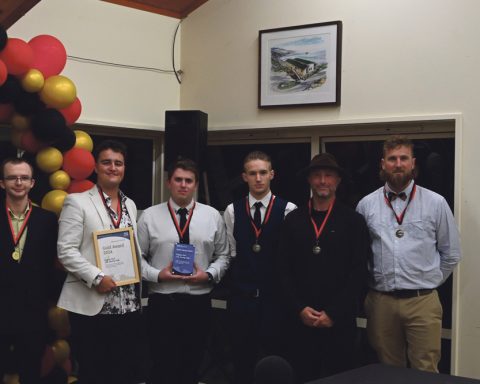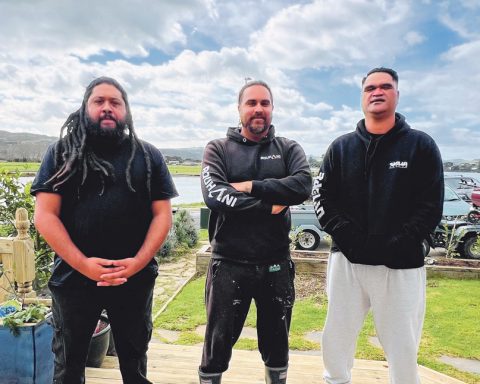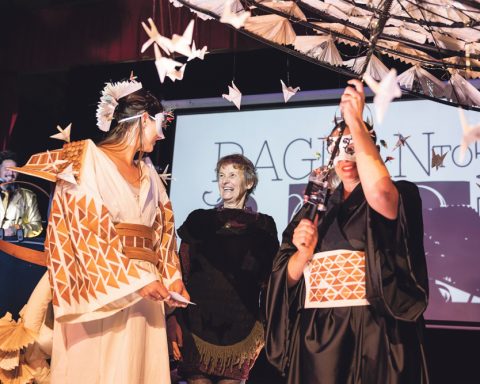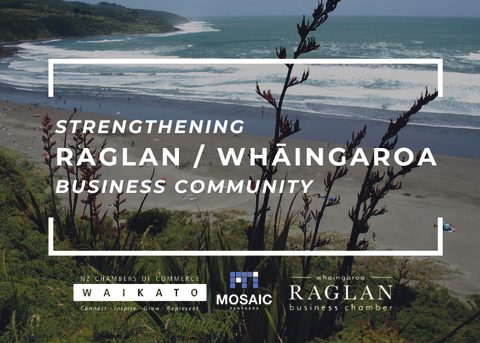Indigo Toxward-Nicolson grew up in Whāingaroa and has just recently started her studies at the University of Waikato. We sat down to talk about mental health, self-love and her journey with ADHD.
What is your relationship like with your mental health and is it something that you think about every day?
My relationship with my mental health has gotten really strong, especially in the last two or three years. Probably since I started going to therapy in the beginning of 2021 just before I started uni for the first time. My anxiety was really bad and I didn’t know why. I was too scared to leave my bedroom, let alone my house. I started therapy and since then my relationship with my mental health is incredible. I’m finally at a point where I can just feel my feelings. For a really long time my feelings felt too big and too painful and too scary. I couldn’t feel them. I wasn’t ready. I‘m always remaining aware of my mental health. I avoid things that make me feel bad and go toward things that make me feel good. Sometimes it is that simple.
What was your relationship like with your mental health when you were younger?
Definitely not good! It always felt like something was wrong. There were constant underlying issues; not being good enough, a need to be validated by others for my happiness. That’s been a major shift between now and then. My mental health really relied on other people whereas today I’m the sole person who looks after it. One of the things that helped change my mindset was every time I got into those moments of over-thinking bad things about myself, I would just physically be like “No. Stop.” Then I would affirm myself with “I am beautiful. I am intelligent, kind, funny and worthy of love.” Always talking to yourself negatively will affect your mental health but you can slowly switch into talking to yourself positively.
When you have been at your lowest point, what has gotten you through?
Definitely my family. I would say that Terri has been quite a solid rock for me over the years. Growing up with an older sibling is just the best thing. They’re your built-in friends. Having an older sister that always grounded me and affirmed me and who was just a few years ahead of me made me feel like I could do it too. I watched her go through turmoil then I experienced the turmoil myself. Heartbreaks were major triggers for me. It definitely brought me down to a dark place but it was always just like “I know that I can get through this. I know the path that I want to end up on.” I used to have some destructive coping mechanisms which were not great. I didn’t have the tools that I have now and that’s okay! I just wanted to numb the feelings any way possible but then you learn to let yourself feel them and you don’t need to numb anymore. Crying helps a lot, and hugs!
You’ve recently been diagnosed with ADHD. What has that experience been like for you?
That was a few months after I started getting therapy. I had just started uni and was confused about why I couldn’t just do the things that I wanted to do. I like being a good student, why can’t I start my assignment now instead of leaving it to the last minute? I was really frustrated with myself. My therapist picked up on it and asked if I had heard of ADHD? I was like “Nah I don’t have that!” I’m not hyper-energetic. I can focus. But the more he talked through what ADHD actually is, the more I was like, okay the dots are starting to connect. I’ve been diagnosed with ADD as well which presents differently. It’s much more internal than external. And I think that for most women, ADHD or ADD, is mostly internal. It’s not being able to gain control of all the thoughts in my head. I’m not expressing it physically. Women mask and contain their symptoms. Just because I can still function, doesn’t mean that I’m not struggling internally. It is constant and I thought that was very normal. You become paralysed.
Since you’ve had your diagnosis and you’ve started on medication, how has it changed your life?
I can do things for myself now! It is incredible. I have so much more patience for myself. I have so much more patience for my younger selves who were dealing with this and had no idea, who were blaming themselves for how hard things were. It was like wow, this whole time I thought there had to be something wrong and there was! Not that there’s anything wrong with it but I suddenly had a reason behind all of my struggles. Discovering that and then having medication for the days where I can’t quite focus or stay stimulated has made my life so much easier. I only take it when I need it which is not very often. I still prefer who I am without medication. I’m way more relaxed now. I’ve started back at uni again and not only am I more passionate about the degree that I’m pursuing but I also understand the way that I learn and I know how to manage that. It feels so freeing. It almost feels like I’m my 5 year old self again. I’m pursuing her dreams. This is a life I always dreamed of but I don’t think I would have gotten here without going through all that turmoil. I’m secure and strong in myself and understand myself so well that now I can give it my all.
What are some of the lessons that you’ve learned?
Mistakes are there to learn from! My biggest takeaway would be that when I make a mistake, I feel it completely. If you’re able to sit with yourself and be like ok this is what we did, this is the consequence of our actions and this is what we are gonna do differently next time. And if you really process that then you’ll make a hell of a lot less mistakes and actually learn the lessons! Also trust your gut. I think if you continue to self doubt and go against what you initially wanted, you’re sort of abandoning yourself in a way. Trust your instinct because you’ll never regret it.
What are some of the tools in your toolbox?
When you get really anxious or sad or upset, you feel your feelings in the front of your chest and your tummy. So if you grab a pillow or hug someone, you are really feeling those feelings and creating a safe space. It instantly soothes you. Hugs are really great, but if you don’t have someone to hug, you can hug yourself. I think routines are really important, too. Maintaining a healthy lifestyle does actually greatly impact your mental health. Create a bit of a routine, stick to it and be there for yourself. And just go do things that make yourself feel good! And if you don’t know what makes you feel good, go and look for it. There are so many things to do!











